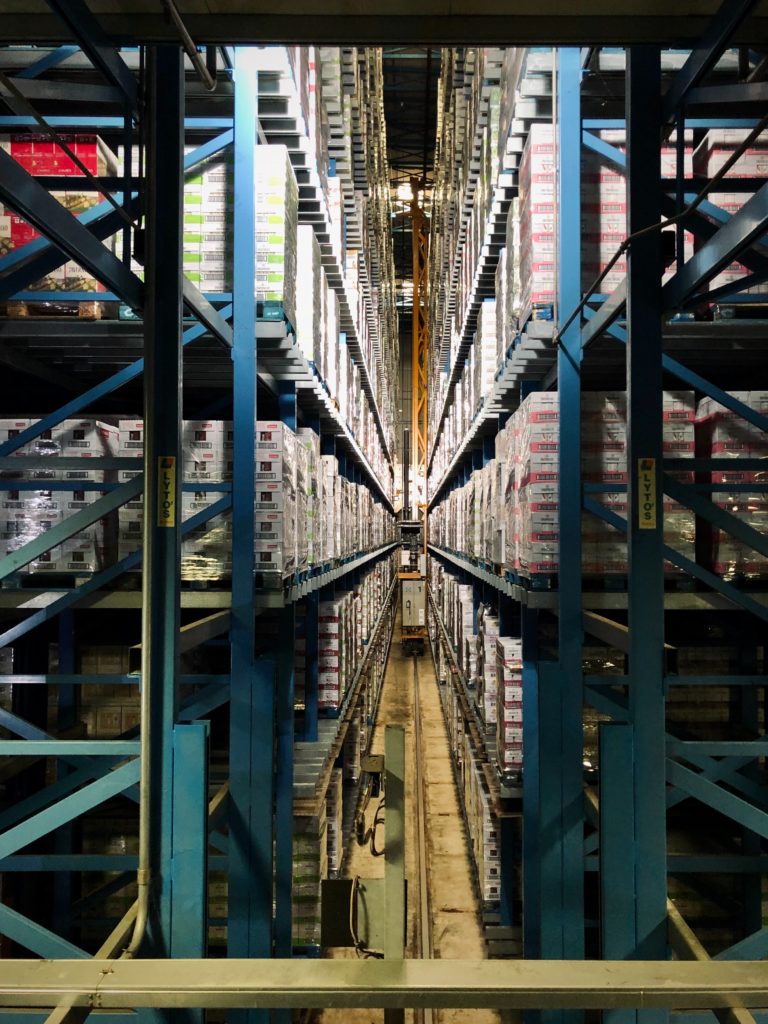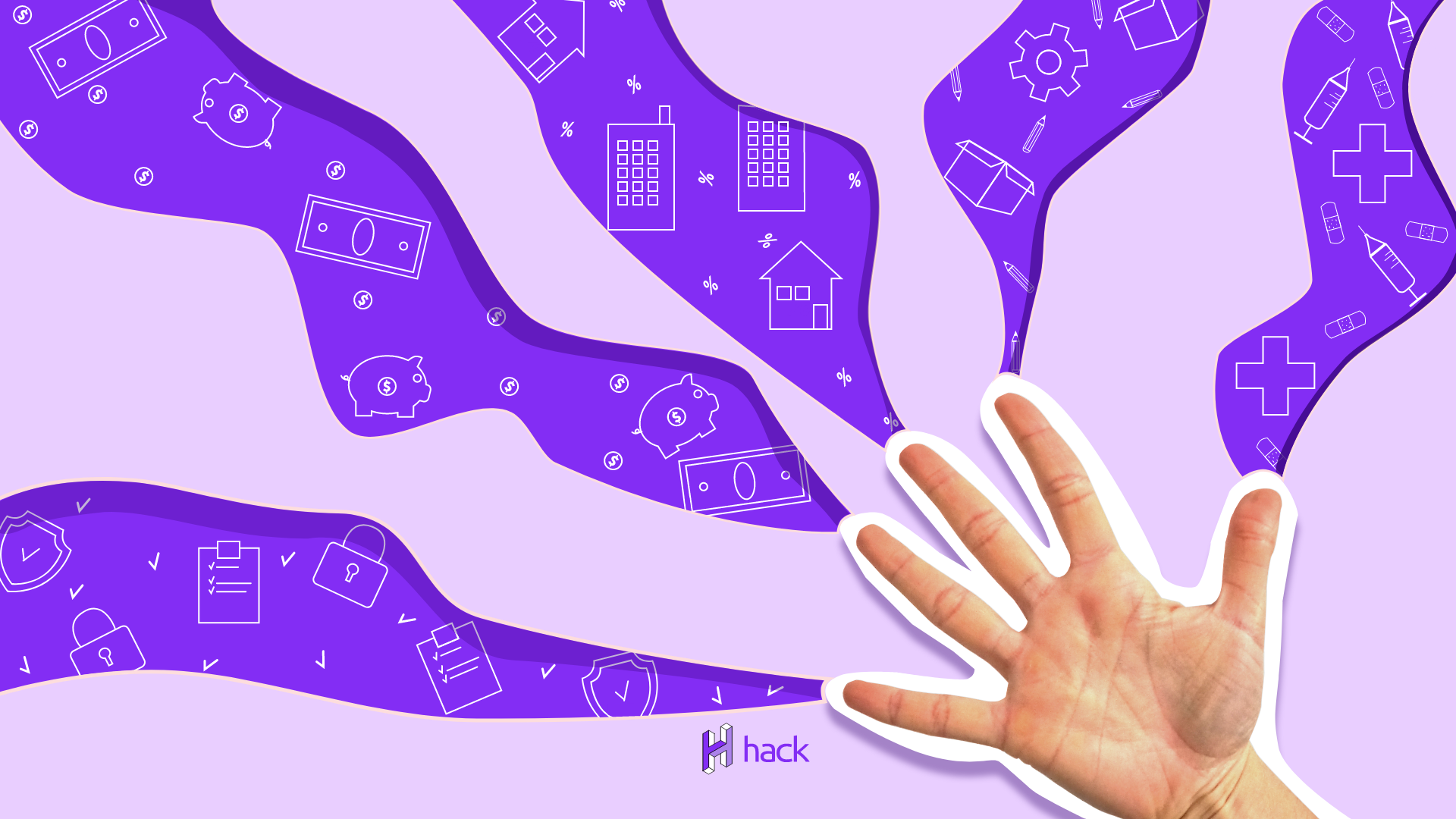While blockchain was once seen solely as the force behind cryptocurrency, now is one of the fastest-growing technologies in the digital world that has come into the limelight in the last few years. Today, blockchain is a widely spread idea that is poised to change the very face of many industries, businesses, and the exchange of data. Considering the benefits and security blockchain offers, tech-heads are trying to employ different ideas to remove the central authority and disrupt various industries, of course for their own benefit.
What is Blockchain?
Before we look at which industries Blockchain has the biggest impact and is likely to drastically change, let’s take a glance at what Blockchain is all about.
A blockchain consists of a list of records known as blocks, which are linked to one another using cryptography forming a chain. Since each block comes with a cryptographic hash of the previous block, transaction data, and a timestamp, no data can be modified. This helps in recording transactions between two parties efficiently with better security and transactional transparency. The virtues of Blockchain technology lead to potential benefits including greater transparency, enhanced security, improved traceability, increased efficiency and speed of transactions, reduced costs, and more.
Read more about Blockchain technology.
Considering these benefits and the security blockchain offers, it is most likely going to revolutionize many business sectors. But since there is no sure-shot of which industries will be disrupted and where organizations will fail, here are 5 industries that most likely to undergo a renaissance of their own:
Finance and Banking

Since Blockchain is particularly known from cryptocurrencies, it should be no surprise that the most common industry using blockchain, is banking and finance. According to a recent IBM survey, 91% of banks are investing in blockchain solutions, and 66% of institutions are expecting to be running at scale with blockchain. It seems that blockchain is finally poised to shake up financial markets in a way that will benefit both consumers and financial institutions.
Every day, millions of transactions take place in the banking sector and blockchain can help in maintaining a secure system that keeps permanent records of these transactions. This not only lowers the risk with better security but enables faster and cheaper transfer thanks to the decentralization offered by blockchain. From making cross-border payments faster to removing the costly middleman it’s already impacting the international as well as domestic banking network. Implementing distributed ledger technology in the banking sector is a great step towards making banks more profitable and valuable as this ledger is distributed, published, and stored in multiple locations and when a transaction occurs, it is added to each copy of the ledger. Because there are many copies of the ledger, blockchain is practically immutable to hackers and frauds.
With that many advantages, come many use cases. Here are some of them:
- Cross-border transactions – Using digital currency based on blockchain technology, one can easily transfer tokens from one place to another, that too without the use of a third-party organization. Moreover, blockchain-powered payment processes can reduce transaction time to mere minutes, and that too with enhanced security, transparency, and affordability. The transaction costs are also reduced and take only a few hours to process and complete international transfers;
- Trade finance platforms – create smart contracts between participants, increasing efficiency and transparency, and opening up new revenue opportunities;
- Digital identity verification – When customer identifying information is secured using blockchain, banks can increase public trust while protecting against fraud and speeding up the verification process significantly;
- Credit reporting – Blockchain-based credit reporting is more secure than traditional server-based reporting and may also enable companies to take non-traditional factors into account when calculating credit scores.
Undoubtedly, Blockchain technology has a lot to offer for the Financial and Banking industry. At a global level, blockchain is being considered by many as a solution to the multiple challenges banks are facing in settlement and clearing, collateral management, KYC, trade finance, or digital identities. With growing enthusiasm for future growth among the banking CEOs (77% of CEOs of banks worldwide), implementing disruptive technologies like blockchain is on the initiative’s agendas. That sounds promising, right?
Read more about how Blockchain benefits the Financial sector.
Healthcare

Let’s face it. The healthcare industry has been in need of a significant disruption when it comes to securing patient’s health records, lack of transparency in the pharmaceutical supply chain, lack of interoperability between databases holding patient health records, and dispersity of healthcare-related information, be it patients’ medical history or medical staff credentials.
Due to the inherent security and decentralization, the benefits of blockchain in healthcare are numerous. That’s why blockchain technology is so important to the industry. It can revamp the trust by securely storing medical records that can be accurately and safely transferred to and accessed by the doctors and people who are authorized while eliminating the need for a central authority and enabling rapid access to data. It can improve the safety of patients’ electronic medical records, facilitates health data monetization, and enforces interoperability between healthcare organizations.
Another healthcare concern revolves around counterfeit medication and blockchain technology can control this, too. The problem is that, often, counterfeit medications are difficult to distinguish from real ones. Blockchain technology solves this problem by using supply chain management protocols where the medicine provenance can be traced, reducing revenue losses and guaranteeing patients safety. A BIR Research stated in a report titled “Global Blockchain in Healthcare Market- Analysis and Forecast, 2017-2025.” that “The most prominent beneficiaries of the technology will be the pharmaceutical companies, which lose approximately $200 billion to counterfeit drugs each year. By enabling complete visibility and transparency throughout the drug supply chain, blockchain will allow tracking of drugs to their point of origin and thus, help to eliminate falsified medication, reducing revenue loss by up to $43 billion annually for pharma companies,”
The number of healthcare organizations implementing Blockchain technology into their systems is rapidly growing. According to a report, the value of the blockchain market in the healthcare industry was $2.12 Billion in 2019 and estimated to reach $3.49 Billion by 2025. So there is nothing else to conclude except that the healthcare industry is among those that are about to be revolutionized.
Checkout more on Blockchain and Healthcare.
Supply Chain

To understand how blockchain can transform the supply chain, let’s look at the challenges in the supply chain. Currently, the supply chain management system is plagued by a lack of efficiency and transparency and most networks face difficulties when trying to integrate all parties involved (suppliers, manufacturers, distributors, retailers, auditors, and consumers) and the current model makes it difficult to maintain a consistent and efficient supply chain system – which impacts negatively not only the profitability of the companies but also the final retail price.
Since Blockchain technology is all about decentralization, transparency, and immutability, there is high interest in how Blockchains might transform the supply chain and logistics industry and solve its problems.
Subsequently, Blockchain can increase the efficiency and transparency of supply chains and positively impact everything from warehousing to delivery to payment. Most importantly, Blockchain provides consensus—there is no dispute in the chain regarding transactions because all entities on the chain have the same version of the ledger. All this leads to less time delays, less human errors, less costs, and more.
It is estimated that the global blockchain supply chain market size was valued at $ 93.16 million in 2017, and is projected to reach $ 9,852.91 million by 2025, growing at a CAGR of 80.2% from 2018 to 2025. Big industry giants like Unilever, Nestle, Tyson, and Dole are now implementing blockchain projects and solutions for tracking and guaranteeing the authenticity of their products. Walmart is another company that uses blockchain to keep track of its pork it sources from China and the blockchain records where each piece of meat came from, processed, stored, and its sell-by-date.
Read more on how Blockchain can improve Supply Chain Management.
Real Estate

Traditional real estate has always been a sphere of business for the “well-resourced” individuals and organizations. Moreover, a real estate business is extremely prone to high levels of corruption and dishonesty. According to the United Nations, from 800 billion to 2 trillion USD dollars is laundered globally every single year, of which the biggest part comes from real estate operations. According to the estimates of the United Nations, this figure is in the region of $1.6 trillion per year. And that is not all, obstacles such as lack of transparency, lack of liquidity, realtor and banking fees, transaction speed, frauds, etc. are driving people away.
Blockchain technology can have a significant impact on solving these challenges, as it has the ability to benefit enterprises as well as individuals in many ways. One of the biggest impacts of Blockchain on commercial real estate would be a smoother, faster contract management process, automation of real estate transactions, acceleration, as well as becoming more accessible. Lets see some more use cases:
- Blockchain makes the transaction process more efficient and cuts costs – Blockchain technology can make transactions of real estate more efficient and less costly by reducing the number of intermediaries. Transactions facilitated on a blockchain can be made within minutes and cost only a fraction of its current price. Expensive intermediaries, such as real estate agents, appraisers, and notaries are cut out of the process.
- Blockchain makes the real estate industry more transparent – Blockchain technologies’ immutable and decentralized nature can have a significantly positive impact on transparency within the real estate market and can assist in combating money laundering and tax evasion. Through blockchain technology, documents, and events during the purchase of a property can be tracked, contracts become readable, and registries cannot be changed afterward. Furthermore, it also establishes an all-encompassing overview of where investments come from and who the actual owner of a property is. As a result, it becomes more difficult for criminal organizations to launder illegally obtained money through the purchase of properties.
- Blockchain makes real estate investments more accessible – Blockchain technology enables new ways to invest in real estate which benefits companies as well as individuals. Blockchain technology allows individuals and companies to purchase and trade only fractions of real estate, and in turn, enables fast and easy transactions of ownership. This creates liquidity and ultimately makes the real estate industry more accessible.
- Tokenization – Tokenization refers to the securitization of digital assets. After an asset has been tokenized, it can be divided into more granular pieces, hence it becomes available to a larger audience. In the case of real estate, tokenization reduces costs of investments, allows fast and easy transactions, and provides liquidity in an otherwise slow-moving industry. Consequently, it enables more people to invest in real estate, also investors with only minimal available capital.
All these use cases lead to benefits like – Faster and more efficient processing of transactions, No manipulation of ownership, Low transaction costs, Low barrier to investing in real estate, Professional opportunities for the regular investment community, and many more
Considering all those benefits blockchain offers for the real estate industry, it should be a matter of time to be implemented.
Read more about Blockchain & Real Estate.
Insurance

The operational inefficiencies of the insurance industry are many: Loads of paperwork worsening the customer experience; complicated claims management presenting an operational nightmare for insurers; risks of fraud, lack of trust, and more.
By switching to blockchain solutions, many opportunities lie ahead for the insurance industry. The new technology can optimize efficiency, security, and transparency for the entire insurance industry, using public ledgers and fortified cybersecurity protocol. Also, it can lower the costs of transaction processing, enhance the customer experience, improve data quality and increase trust between parties among other benefits. In fact, many sectors already utilize this technology, including companies providing and trading renters, homeowners, unemployment, and travel insurance. In an Accenture Technology Vision 2019 survey, it is stated that more than 80 percent of insurance executives reported that their organizations have adopted distributed ledger technology across one or more business units, or are piloting or planning to pilot the technology. Moreover, the blockchain in the insurance market size was valued at USD 64.50 million in 2018 and projected to reach USD 1,393.8 million by 2023, at a Compound Annual Growth Rate (CAGR) of 84.9%. The major growth drivers of the market include the emerging need to have transparent and trustworthy systems, and the overall trends witnessed in the insurance sector related to the increase in claims-related frauds.
This sounds promising!
Be sure to check our writeup on Blockchain & Insurance industry.
Conclusion
Blockchain is becoming the newest technology that will impact many industries in the years to come. Security of data is something many industries are looking for and there is no safer option than Blockchain in terms of recording and transferring data. These are just a few of the wide-ranging ways technology can revolutionize the way business can be conducted now and for years to come. As technology becomes more sophisticated, the options are virtually limitless.
If you are planning to incorporate blockchain solutions for your business venture, get in touch with our experts who can consult you on what would be best for your business needs. Embrace the immense benefits of blockchain and enjoy added security to your data.
What are your thoughts? Which industry do you believe will use blockchain at scale?



